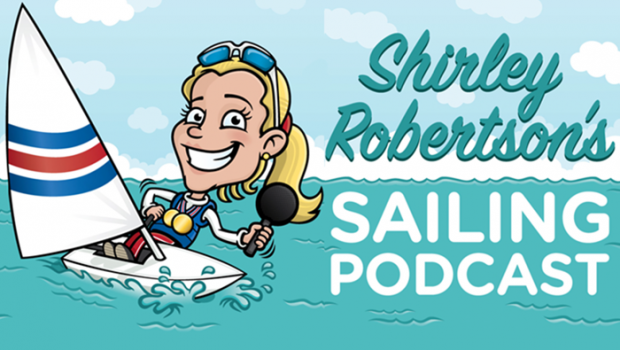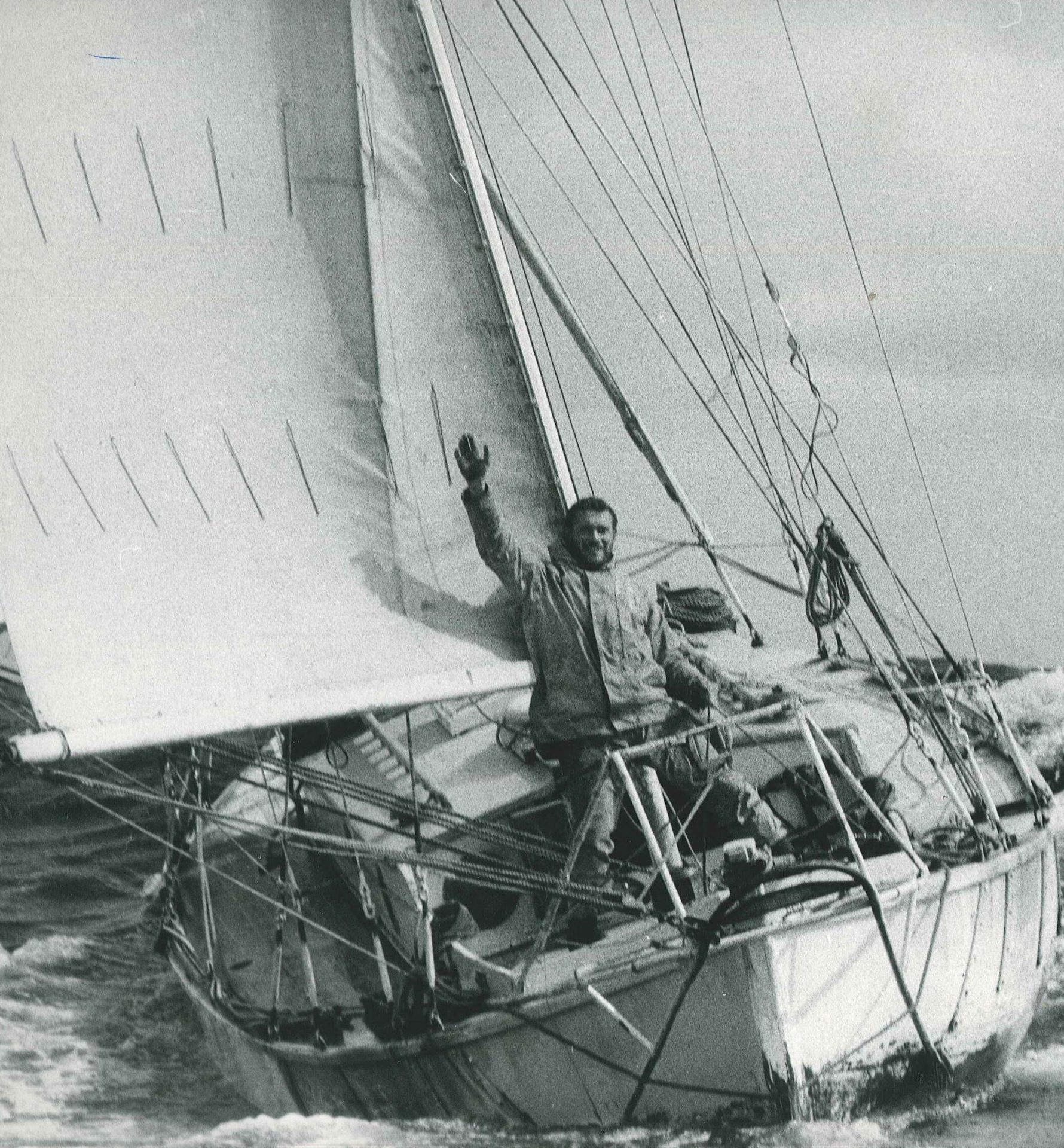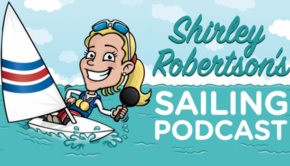Sitting down with Sir Robin Knox-Johnston
Published on July 8th, 2020
For this month’s episode of double Olympic gold medalist Shirley Robertson’s Sailing Podcast, she sits down for a two part podcast chat with the first man ever to sail solo non-stop around the planet, Britain’s Sir Robin Knox-Johnston.
Sir Robin completed his ground breaking voyage in April 1969, after an astonishing 312 days alone at sea, having sailed his thirty two foot ketch Suhaili thirty thousand miles around the planet.
The voyage is one of the most documented in sailing, and was part of the famous Golden Globe race, initiated by the British newspaper, The Sunday Times.
Nine entrants eventually left to compete in the Golden Globe, but Sir Robin was the only boat that finished, the physical and mental travails of the effort famously proving too much for many of the other entrants.
“The problem we had then was that there was very literature, you know. Who’d written a book about the Southern Ocean, the Smeatons, who’d been pitchpoled, Chichester’s book wasn’t out, so there was nothing you could read up except the Admiralty Manuals.
“So I read those up and thought ‘OK, we can get big waves down here, so I’ve just got to deal with them as I can’. But I’ve got a well found boat, she’s a nice shape, let’s see how I can manage her down here, and I learned a lot, from my first few gales, I learned a lot about the boat.”
Sir Robin spent much of his voyage nursing Suhaili around the planet, constantly running repairs as the savage effects of months in the ferocious Southern Ocean took a heavy toll. But his trusty craft was more than a match for the brutal southern storms, and it is with deep affection that Sir Robin talks of her now.
“She was a cracking little sea boat, a wave could wash right over and did on a few occasions, she’d just shake herself and bob back up, like a terrier really. I built up a huge affection for Suhaili, a tremendous trust in her, she is simple, she’s not complicated.
“Everything’s stronger than it needs to be, everything’s thought through. She’s very important to me, she’s been part of my life since I was 23, and I’ve done so much with her, she’s done so much for me too. I always say any fool could get her around the world, and I proved it!”
Once passed New Zealand, and into the second half of his voyage, a troublesome radio meant Sir Robin struggled to make contact with anyone to inform of his progress, and he was assumed missing until he finally signaled a ship while passing the Azores, just fifteen hundred miles from home.
News of his survival hit the front pages, and by the time he steered Suhaili back into the English Channel, he was a household name in the UK. Met by a flotilla of well wishers, the shoreline around Falmouth lined with cheering crowds, Robin Knox-Johnston had become the first man ever to complete the ground breaking voyage.
Having completed his voyage, and cemented his place in the annals of the history of exploration, Sir Robin’s competitive streak soon saw him back on the global race course, and by 1977 he was joint skipper on an entry in the Whitbread Round the World Race, where amongst his crew was a certain Peter Blake.
With the announcement of the Jules Verne Trophy, Knox-Johnston and Blake went on to famously form the eventual record holding team, ENZA New Zealand, breaking the established record in 1994 with a 74 day lap of the planet.
Robertson and Knox-Johnston then discuss how a trip with British mountaineer and expedition leader Sir Chris Bonnington inspired an idea that would become the ‘open to all’ crewed around the world adventure, The Clipper Race. It’s a race that has been on going now for over twenty years, and is currently in it’s twelfth, a fact that Sir Robin ranks as one of his greatest achievements.
“When I look at all the lives that have benefited from the Clipper, and the number of those sailors, forty percent of them have never been on a boat before, who have taken up sailing subsequently as their sport, to my mind that is going to rank pretty highly because there’s over five thousand people now that have taken the sport up all over the world.”
This edition of the podcast is in two parts:
Part 1
Part 2
Shirley Robertson OBE made history by becoming the first British woman to win Olympic Gold Medals at two consecutive Olympic Games. Shirley Robertson’s Sailing Podcast, produced and edited by Tim Butt of Vertigo Films, is available to listen on her website or via most popular podcast outlets, including iTunes, Spotify, Google Podcast, and aCast.










 We’ll keep your information safe.
We’ll keep your information safe.